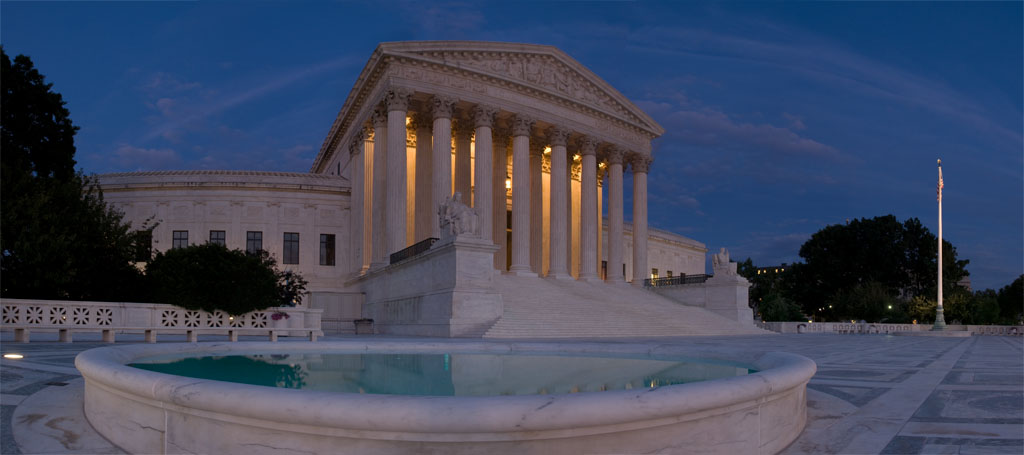Technology
Computer Scientist Challenges AI Copyright Ruling in Supreme Court

A computer scientist has formally petitioned the US Supreme Court to reconsider whether works created solely by artificial intelligence should be eligible for copyright protection. Stephen Thaler filed the petition on October 12, 2023, challenging a 2025 ruling that asserted only works with human authorship can qualify for copyright under US law. Thaler argues that the interpretation imposed by the US Copyright Office and the DC Court of Appeals introduces a “human authorship” requirement that is not stated in the Copyright Act itself.
The dispute originated when Thaler attempted to register an artwork titled “A Recent Entrance to Paradise,” generated independently by his machine-learning system known as the Creativity Machine. The US District Court for the District of Columbia rejected his application, determining that non-human authorship disqualified the work from copyright protection. The court underscored that “human authorship is a bedrock requirement of copyright,” a stance later upheld by the United States Court of Appeals for the District of Columbia.
The appellate court affirmed that the Copyright Office acted correctly, stating, “As a matter of statutory law, the Copyright Act requires all work to be authored in the first instance by a human being.” Thaler had explicitly listed the Creativity Machine as the sole author, which the court noted was “undeniably a machine, not a human being.” This decision reinforced a longstanding precedent that defines authorship as an inherently human activity.
The case raises fundamental questions about how courts define authorship in the context of rapidly evolving technologies. It challenges whether originality alone should suffice for copyright eligibility, or if the law necessitates human input at the moment of creation. This legal debate reflects the growing tension between traditional concepts of creativity and the realities of generative technology, where human involvement may be minimal or absent altogether.
If the Supreme Court agrees to hear the case, it would mark the first opportunity for the highest court in the United States to determine if original works produced without human participation can meet the legal standards for copyright protection. A ruling in favor of Thaler could significantly reshape intellectual property law, potentially extending constitutional and statutory copyright protections to works generated by autonomous systems.
The outcome of this case may not only influence the future of copyright law but also set a precedent for how society views the intersection of creativity and technology. The implications extend beyond legal boundaries, touching on philosophical questions about the nature of authorship and the role of artificial intelligence in creative processes.
In a separate historical context, the Supreme Court also dealt with the landmark Bakke affirmative action case in 1977, which revolved around admissions policies in educational institutions. The court ruled against the affirmative action plan at the University of California Davis Medical School, asserting it was unconstitutional. This case is often referenced in discussions about equality and discrimination in educational settings, showcasing the court’s pivotal role in shaping societal norms.
As the legal landscape continues to evolve, Thaler’s petition may signal a new chapter in the ongoing dialogue about the rights of creators and the capabilities of artificial intelligence. The outcome could have profound implications not just for copyright law but for the broader understanding of creativity in an increasingly automated world.
-

 Technology4 months ago
Technology4 months agoDiscover the Top 10 Calorie Counting Apps of 2025
-

 Health2 months ago
Health2 months agoBella Hadid Shares Health Update After Treatment for Lyme Disease
-

 Health3 months ago
Health3 months agoErin Bates Shares Recovery Update Following Sepsis Complications
-

 Technology3 weeks ago
Technology3 weeks agoDiscover 2025’s Top GPUs for Exceptional 4K Gaming Performance
-

 Technology2 months ago
Technology2 months agoElectric Moto Influencer Surronster Arrested in Tijuana
-

 Technology4 months ago
Technology4 months agoDiscover How to Reverse Image Search Using ChatGPT Effortlessly
-

 Technology4 months ago
Technology4 months agoMeta Initiates $60B AI Data Center Expansion, Starting in Ohio
-

 Technology4 months ago
Technology4 months agoRecovering a Suspended TikTok Account: A Step-by-Step Guide
-

 Health4 months ago
Health4 months agoTested: Rab Firewall Mountain Jacket Survives Harsh Conditions
-

 Lifestyle4 months ago
Lifestyle4 months agoBelton Family Reunites After Daughter Survives Hill Country Floods
-

 Technology3 months ago
Technology3 months agoUncovering the Top Five Most Challenging Motorcycles to Ride
-

 Technology4 weeks ago
Technology4 weeks agoDiscover the Best Wireless Earbuds for Every Lifestyle









